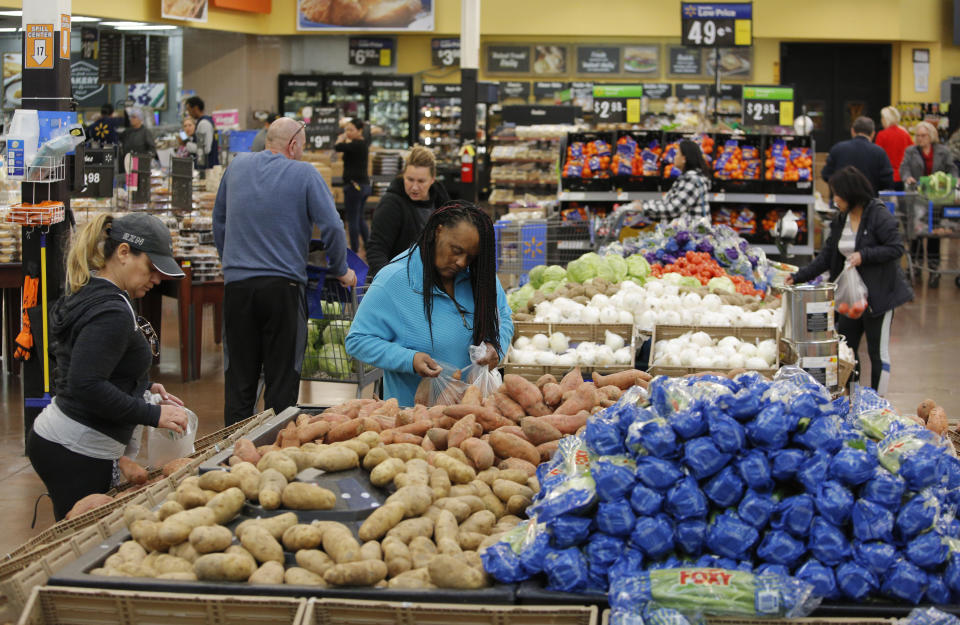Most Canadians believe food prices increasing faster than income: survey

A majority of Canadians believe food prices are rising at a faster pace than household wages and plan to change their grocery shopping habits to cope with the costs, a new survey has found.
According to a poll of 1,507 people conducted by Angus Reid and Dalhousie University released Tuesday, 87 per cent of Canadians are concerned that food inflation is outpacing wage growth. More than half of those surveyed – 53 per cent – said they plan to change their shopping habits to manage, such as eating less often at restaurants, using flyers and coupons and and buying in bulk.
“This is a food affordability issue. People really feel that they’re falling behind,” Sylvain Charlebois, a professor of food policy at Dalhousie, said in an interview with Yahoo Finance Canada.
“That really can become a legitimate issue for the food industry in general.”
A report released earlier this month by Dalhousie and the University of Guelph found that food prices are expected to jump up to four per cent next year, meaning the average Canadian family will spend $487 more on groceries in 2020. The report cited many factors contributing to the price jump, including climate change, geopolitical and trade conflicts, and consumer indebtedness.
Meat prices are expected to increase by between four and six per cent in 2020, the most of all the food categories. Vegetables, fruit and seafood will also see price hikes of between two and four per cent.
“We should expect that food inflation exists, but as soon as you start seeing that Canadians feel they are falling behind, it’s a completely different problem,” Charlebois said, adding that either wages have to go up to ensure Canadians can afford food, or the industry may start “cutting corners” to lower prices. The risk there, Charlebois said, is that the quality of food may fall.
“There is a sweet spot when it comes to food inflation, meaning there’s enough wealth for the food industry, and consumers can afford what you’re trying to sell to them. I think we’re beyond that right now.”
The survey also found that 69 per cent of Canadians are concerned about the price of vegetables, the top food category when it comes to affordability anxiety. People are also concerned about the cost of fruit (60 per cent) and meat (55 per cent).
To save on food, 60 per cent of Canadians said they will eat less often at restaurants. Forty-nine per cent said they plan on using flyers and coupons more often, and 48 per cent will look for discounts at grocery stores.
Download the Yahoo Finance app, available for Apple and Android.

 Yahoo Finance
Yahoo Finance 
